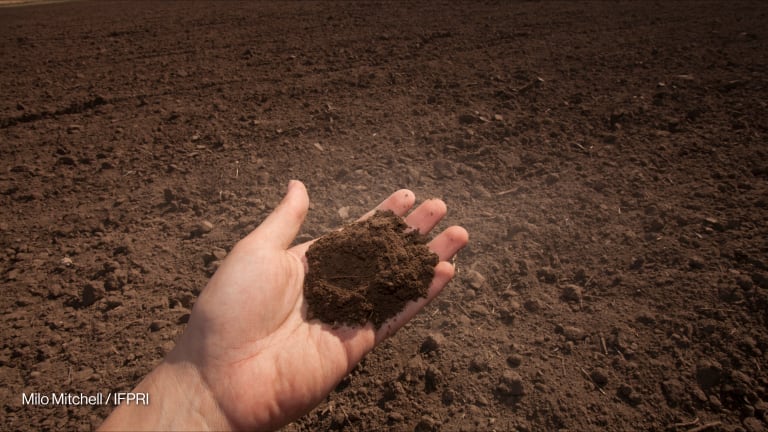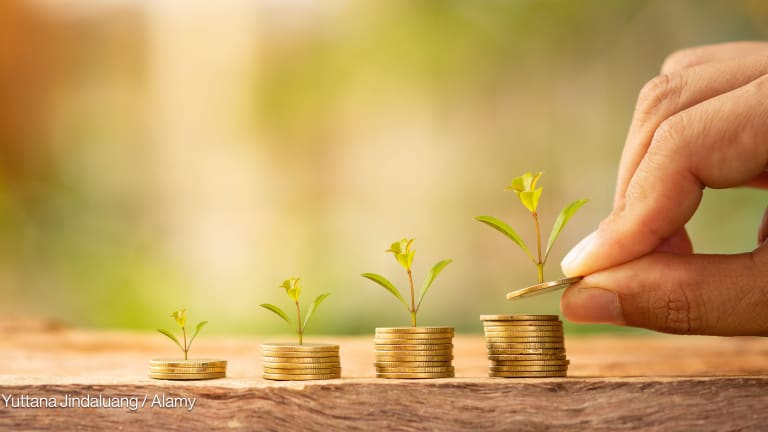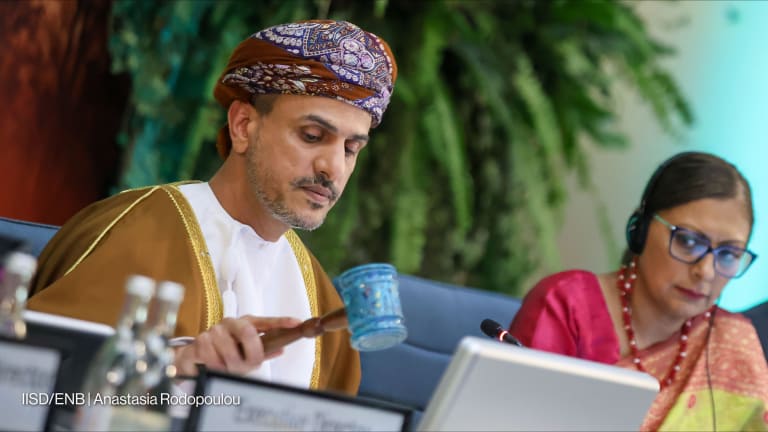
As world leaders gathered in Glasgow to attend the 26th United Nations Climate Change Conference, or COP 26, and discuss solutions to our most pressing challenges, Panama — one of the world's only three “carbon-negative” countries — had a unique perspective to share with the global community.
Recognizing our responsibility to today’s young people and to future generations, Panama is proud to partner with Bhutan and Suriname, the world’s other carbon-negative countries, to announce the creation of a carbon-negative alliance that will share our climate-oriented best practices with other nations and encourage and support those seeking to reach the same benchmark.
The necessity of ambitious and coordinated climate action has never been so apparent. With each passing year, climate change-related natural disasters occur with increasing frequency and severity. This year, extreme floods devastated communities from China to Germany. Massive wildfires scorched the American West. Tropical storms devastated swaths of the Caribbean and beyond. And tragically, the countries that are impacted most by the effects of climate change are often those who have contributed the least to the problem.
We represent the beginning of a carbon-negative coalition that we believe can have an outsized impact in tackling the climate challenge.
—Panama, Suriname, and Bhutan are illustrative examples. At first glance, we are comparatively small nations with little in common. We are differentiated by our diverse geographies, histories, cultures, and economies. Yet we are united by two key distinctions: We are highly vulnerable to the impacts of climate change, and we place conservation and sustainability at the center of our political and economic agendas.
What does it mean to be a carbon-negative country? In short, “carbon-negative” refers to the fact that our nations’ carbon sinks — meaning our forests, oceans, grasslands, and similar environments — absorb more carbon than our economies emit. Though our geographies are diverse, we are each blessed with pristine natural ecosystems that enable us to sequester more carbon than we put out.
Disturbingly, the United Nations Educational, Scientific and Cultural Organization reported this year that human activity and climate-related disasters have turned 10 of the world’s heritage forests from carbon sinks to carbon sources. It is therefore critical for governments to recognize the responsibility associated with preserving our natural carbon sinks, and to incorporate climate action and conservation efforts as fundamental pillars of their domestic and foreign policy agendas if we are to reverse this trend.
Earlier this year, for example, Panama successfully reached the global 30x30 goal of conserving 30% of our land and waters by 2030, a full nine years ahead of schedule. Being home to more than 10,000 species of plants, Panama has committed to bold forest conservation initiatives, including plans to reforest 50,000 hectares of land by 2050.
Meanwhile, Suriname has retained 93% of its original forest cover, the highest rate in the world. And Bhutan’s constitution requires that “a minimum of sixty percent of Bhutan’s total land shall be maintained under forest cover for all time.”
Panama and other carbon-negative countries have decided to make the preservation of natural ecosystems the cornerstone of our government policies and business agendas. In each case, the result is a society that coexists in balance with the forests, marine areas, and natural landscapes for which we are known. We view our natural environments and the people that inhabit them as pieces of cultural heritage that also offer the best defense against the impacts of climate change.
We recognize, however, that preserving our natural environments is not enough — we must also elevate our ambitions when it comes to transitioning away from fossil fuels. Along those lines, Panama has augmented our conservation initiatives with bold plans to enable inclusive and sustainable transitions to renewable energy. Panama’s energy transition agenda, for example, lays out the country’s strategy to use 70% renewable energy sources by 2050, with an emphasis on creating inclusive growth for women and indigenous communities.
In fact, over 50% of entrepreneurs in Panama’s burgeoning sustainable tourism industry are women, reinforcing our belief that gender parity is crucial to unlocking opportunities inherent in new green industries. Leveraging our strategic position at the crossroads of the world’s two largest oceans, Panama is also investing in growing sustainably as a maritime and trade hub, and proving that conservation and prosperity can go hand-in-hand.
Taken together, our robust environmental preservation measures and ambitious energy transition targets have provided Panama, as well as Bhutan and Suriname, with a unique perspective. While our three countries alone will not be enough to move the needle, together we represent the beginning of a carbon-negative coalition that we believe can have an outsized impact in tackling the climate challenge.
The carbon-negative alliance we forge will provide an organizing structure to elevate sustainability and conservation ambitions among member states and facilitate the global transfer of knowledge and best practices that have enabled us to achieve and maintain carbon-negative status.
With international support and financing, this initial framework seeks to hold in-depth technical trainings on achieving carbon-negative status; host forums and events on our environmental conservation practices; and put our technical leadership on environmental and sustainability at the disposal of those aiming to achieve the same climate targets.
In addition to serving as a forum that will share best practices, this new alliance will advocate on behalf of carbon-negative nations on the global stage. From calling for carbon tax exemptions and advantageous lending terms for carbon-negative countries, to developing compensation and assistance programs for vulnerable communities’ irreparable environmental losses, the alliance will amplify member states’ influence in the international arena while incentivizing others to elevate their climate ambitions.
Panama believes that every nation should strive to achieve carbon-negative status, because the future of our planet depends on all of us making climate action a priority. Our premise might sound simple, but it reflects an incontrovertible truth: The more carbon-negative countries there are, the better our chances of halting and reversing the catastrophic impacts of climate change. If nations as diverse as Panama, Suriname, and Bhutan can achieve and maintain carbon-negative status, others can do it too.
We invite you to join us.
Search for articles
Most Read
- 1
- 2
- 3
- 4
- 5








